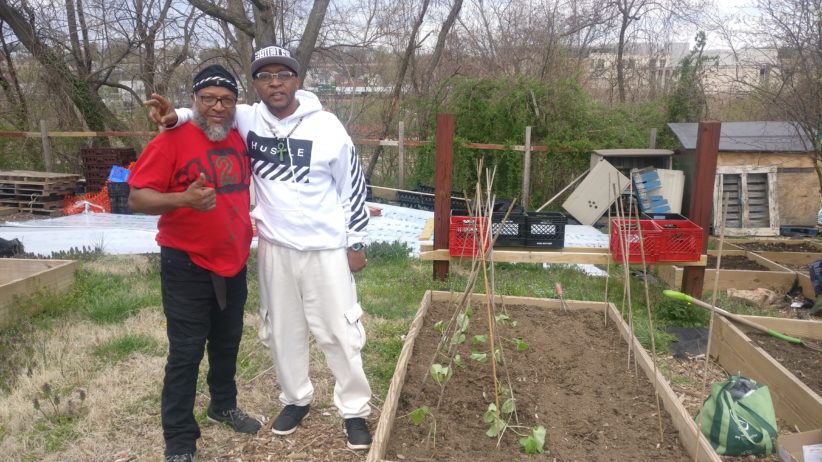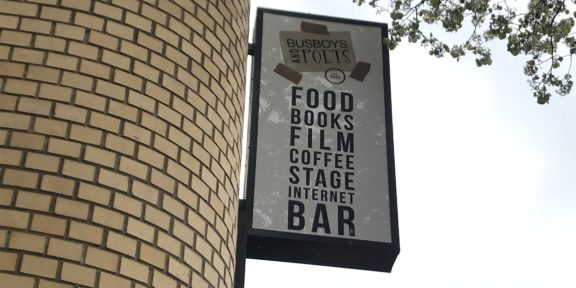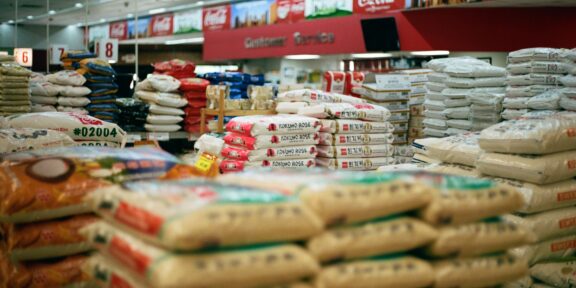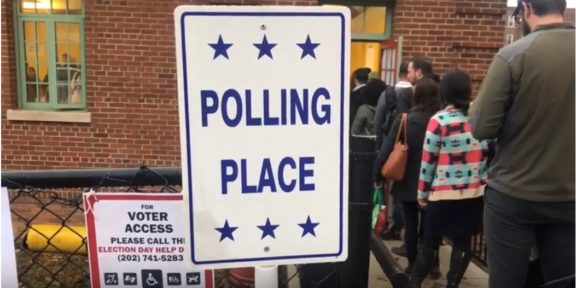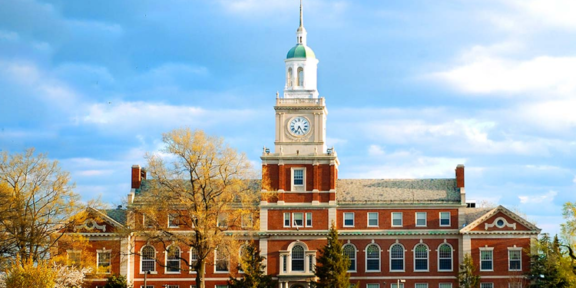As the weather changes and we trade bitterly cold days for equally warm ones, Muhsin ‘Boe Luther’ Umar and Wallace Kirby are preparing for a new harvesting season. On a particularly hot Saturday afternoon in Clay Terrace in Ward 7, they are toiling away in the Dix Street Community Garden, watering plant beds, removing weeds, and priming the soil for a new life. For the past three and a half years, the two have been giving back to their community through their urban agriculture collaborative, ‘Hustlaz 2 Harvesters’.
Recently, the Metropolitan Washington Council of Governments released a report detailing the changes in farming and food production in the D.C. area. The report highlighted that currently, the economic impacts of agriculture and food production in the D.C. area collectively total $91.3 billion, but farmers in the area are not producing as much as they used to, due to population growth, demand increases, and production declines.
One of the recommendations given to address this problem is to encourage the growth of farming businesses that connect directly with residents and consumers. It’s the type of connection that Hustlaz 2 Harvesters specializes. Its mission is to affect change in DMV communities through urban farming, nutrition, building trade, and employment initiatives. Luther and Kirby, the organization’s co-founders, say that agriculture has always been a part of their lives.
“I was born in it. This neighborhood right here was a farm back in the ’30s,” Umar said, reflecting on his childhood in Clay Terrace. “All through this corridor, you never got hungry cause you could always go in somebody’s backyard that was growing fruits and vegetables in abundance.”
Kirby, who also grew up here, fondly recalls the excursions he took during his years at Richardson Elementary, which is now Kipp Charter School.
“Every two weeks we did nature walks, and they told us about every tree, every plant. We looked at reptiles, turtles, fish. We identified everything in the ecology.”
Although the two vaguely knew each other during childhood, their paths later on in life weren’t very different. They both experienced the effects of the fight for racial justice in 1960s D.C. Segregation laws and police brutality continuously stymied any progress that African-Americans could make in their economic, intellectual and cultural advancement during that time.
Frustrations came to a high point during the 1968 race riots: over four days, buildings were burned and destroyed, as many rebelled against this injustice and the federal government’s refusal to do anything about the staggering poverty rates in their communities.
Kirby reflected on the period of unrest.
“When the rides occurred, when Martin Luther King Jr. was assassinated, we used to have a lot of black-owned stores. Then all these stores were looted, torn down, and at that time the police beat us up, ran us, threw tear gas on us…”
He further explained that they were only able to survive on the things they looted.
“That kind of saved us. We were able to continue to grow. People knew how to preserve because we were on lockdown for a couple of months.”
As many young, oppressed black men did, the two fell into a life of crime to bring money into their community. Umar remembers everything they tried to do to help alleviate some of the community’s struggles.
“We paid people’s rent, paid for school clothes, gave kids money for ice cream. We looked at criminal life like an alternative approach to economic opportunities that were being denied to us.”
Years later, after they had both served prison sentences, they rekindled their connection and decided that they wanted to change their lives, and the lives of those in their communities, for the better. It all started with the quarter acre of land on Dix Street.
“We saw this area, and we inquired what was going on,” Umar said. “The individuals from Washington Parks and People were just draining money out of it through grants. One day I called Wallace and told him I wanted to take it.”
And they did. Though the pair didn’t have all the physical and financial resources they needed in the beginning, they utilized the connections they’d made over the years to turn their vision into reality.
“We’re hustlers. What it means is that we have an entrepreneurial mindset. An entrepreneurial spirit,” Kirby says. “We’ve been to all kinds of prisons, we’ve met all kinds of people. All we did was tap into our network.”
They have since transformed that land into an applied research garden, which is “by the community, for the community.” Much of the raw materials used in their startup process was salvaged from places like construction sites.
“One man’s trash was our treasure,” Umar remarked. “That’s how we started. We just scrounged around.”
He also highlighted that they make profits by selling at farmer’s markets occasionally, but community members are given produce free of charge. “They make donations sometimes, but we don’t ask them to pay for what we grow here.”
Now, they are on their second year of a USDA Sustainability Grant through the University of the District of Columbia, which allows them to buy tools and other materials. It was also at UDC that they gained certifications for aquaponics, agroponics, carpentry, food management, and nutrition, and several other agricultural practices.
Currently, there are about 34 community gardens in the District of Columbia, according to the Department of Parks and Recreation. But this isn’t just a garden. The pair have created a hub for agro-entrepreneurship and training opportunities for members of their community.
“We do it for the community, but we also want them to learn to be entrepreneurs,” Kirby said. “We’ve created an environment where we’ve trained marginalized people, those with physical and intellectual disabilities, full-blown mental health issues, in urban agriculture. If we did the calculation, we’ve trained at least a couple hundred people over our three and a half years.”
Tawndalaya DaRoza, a Howard University graduate, volunteers with Hustlaz 2 Harvesters. During her time at Howard, she studied Political Science and Community Development. Now, it’s the latter she finds herself most involved in, as she helps the pair to implement structured techniques of growing more efficiently.
“The way that I see myself doing community development is through spaces like this. I want to have my own land but also have a space for the community. After I graduated, being here made me realize my passion for doing this. It doesn’t feel like work. It’s healing.”
This initiative hasn’t come without its challenges, as the men realize that there’s only so much they can do to tackle issues like food insecurity in Ward 7. Kirby believes that taking the label ‘food desert’ at face value is problematic.
“The reality is we’re talking about economically deprived areas. How can you address the social, economic and food insecurity issues in these low-income communities when agencies like the Department of Parks and Recreation are only allowing handpicked individuals to coordinate and manage resources?”
He likens this treatment to those of sharecroppers in times past.
“That’s not going to lead to much of anything.”
Still, they are dedicated to playing their part in ensuring the well-being of their people. “This year, our focus is growing specialty crops that will address some of the specific health issues that we know exist in our community, like diabetes,” Wallace noted. “We grow kale, broccoli, tomatoes, hot peppers, bell peppers…all types of greens and berries.”
Their goal is to create a space that is beneficial to everyone. They are currently working on several projects, including a greenhouse for winter growing, a garden treehouse for children, and a system for recycling water from the nearby creek.
“It’s small, but we want to use every inch of it,” Luther said. “When you come in here, whether you’re a kid or a senior, there will be something for you to do.”
As far as their impact, both men were very clear about how they hope to be remembered.
“I want to leave behind a great trail of knowledge for the younger generations when it comes to agriculture,” Umar said. “Because I’m quite sure you can survive off that. I want people to say ‘I remember those two guys that single-handedly took a garden and transformed it into an oasis in the neighborhood.’ ”
“We transform land and lives,” Kirby added. “Through the land, we’re using agro-entrepreneurship to show people a different way to perceive economic opportunities. To see themselves in it, to be willing to participate in it, and see the value in it. We want people to see that even if you came from a negative background, you can transform that experience. You can turn any negative into a positive.”

